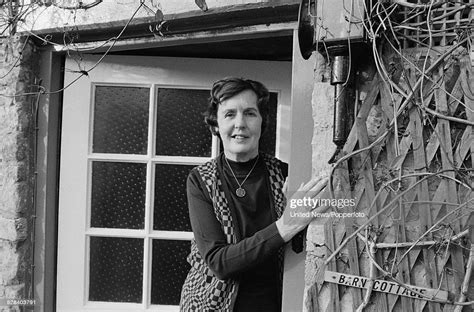A Quote by Barbara Pym
Novel writing is a kind of private pleasure, even if nothing comes of it in worldly terms.
Related Quotes
The key is realizing - and believing - that this world is not your home. If you and I ever hope to free our lives from worldly desires, worldly thinking, worldly pleasures, worldly dreams, worldly ideals, worldly values, worldly ambitions, and worldly acclaim, then we must focus our lives on another world.
It is pleasure that lurks in the practice of every one of your virtues. Man performs actions because they are good for him, and when they are good for other people as well they are thought virtuous: if he finds pleasure in helping others he is benevolent; if he finds pleasure in working for society he is public-spirited; but it is for your private pleasure that you give twopence to a beggar as much as it is for my private pleasure that I drink another whiskey and soda. I, less of a humbug than you, neither applaud myself for my pleasure nor demand your admiration.
If I'm writing a novel, I'll probably get up in the morning, do email, perhaps blog, deal with emergencies, and then be off novel-writing around 1.00pm and stop around 6.00pm. And I'll be writing in longhand, a safe distance from my computer. If I'm not writing a novel, there is no schedule, and scripts and introductions and whatnot can find themselves being written at any time and on anything.
I think the success of every novel - if it's a novel of action - depends on the high spots. The thing to do is to say to yourself, 'Which are my big scenes?' and then get every drop of juice out of them. The principle I always go on in writing a novel is to think of the characters in terms of actors in a play. I say to myself, if a big name were playing this part, and if he found that after a strong first act he had practically nothing to do in the second act, he would walk out. Now, then, can I twist the story so as to give him plenty to do all the way through?
With my students I give them lots and lots of guided writing. Part of it is as simple as writing a lot but not toward anything. The mind floats. Then I help them see where the language has heat. If we do this a lot in class, students eventually relax into this writing practice and enjoy it. Even just that - writing pleasure without the anxiety of "audience" or "grade" or "success" - is a kind of impetus toward the unfamiliar.







































